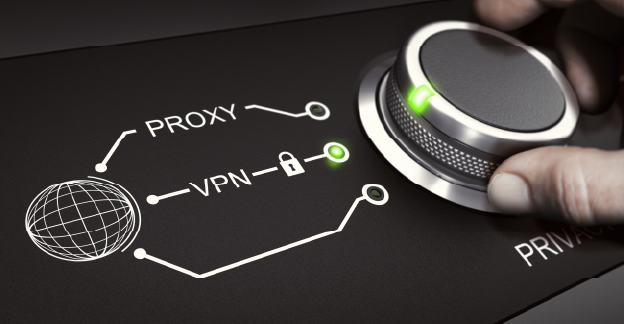What is a Proxy Server? Is it the same as a VPN?

What is a Proxy Server? Is it the Same as a VPN?
In today’s digital world, the need for online privacy and security has become increasingly important. As more people become aware of how their data is used, tracked, or even exploited, technologies like proxy servers and VPNs (Virtual Private Networks) have gained popularity. But what exactly are these tools, and are they the same? Let’s break down both technologies and explore their similarities and differences.
What is a Proxy Server?
A proxy server acts as an intermediary between your device (like a computer, smartphone, or tablet) and the internet. When you connect to a proxy, your internet traffic is routed through this server before it reaches its final destination. Here’s how it works:
- User Request: You make a request (for example, to visit a website).
- Proxy Server: The proxy receives your request and forwards it to the internet on your behalf.
- Response: The website's data is sent back to the proxy, which then forwards it to you.
Essentially, a proxy masks your IP address, allowing you to browse anonymously, bypass geographical restrictions, or access blocked content. However, proxy servers don’t encrypt your data. This makes them a good option for tasks like unblocking websites, but not necessarily for maintaining robust privacy.
Types of Proxy Servers:
- HTTP Proxy: Ideal for accessing websites, especially for tasks like browsing and data scraping.
- SOCKS Proxy: A more flexible proxy that handles different types of traffic (e.g., web browsing, email, file transfers). It’s slower but more versatile.
- Transparent Proxy: These don’t hide your IP address and are usually implemented by institutions or companies to monitor user activity.
What is a VPN (Virtual Private Network)?
A VPN is a more advanced tool for online privacy and security. Like a proxy server, a VPN also routes your traffic through an intermediary server, but with one crucial difference: encryption. When you connect to a VPN, it establishes a secure “tunnel” between your device and the VPN server, encrypting all your internet traffic.
Here’s how it works:
- User Request: You connect to a VPN server, which encrypts all your outgoing data.
- VPN Server: The server masks your IP address, routes your traffic, and sends it to the internet.
- Response: The website’s data is encrypted, sent back to the VPN server, and then decrypted and delivered to you.
A VPN ensures that all your online activity—whether it’s browsing, streaming, downloading, or communicating—remains private and secure. This is particularly useful when using unsecured networks, such as public Wi-Fi hotspots, where data can be easily intercepted.
Key Differences Between a Proxy Server and a VPN
-
Encryption:
- Proxy Server: Does not encrypt your data. While it can hide your IP address, your internet traffic is still visible to anyone who might be monitoring it.
- VPN: Encrypts all data traveling between your device and the VPN server, ensuring that your activity is secure from hackers, governments, or other third parties.
-
Speed:
- Proxy Server: Typically faster since it doesn’t encrypt data.
- VPN: Can slow down your connection due to the encryption process, but many modern VPNs have optimized servers to minimize this impact.
-
Privacy:
- Proxy Server: Offers basic privacy by masking your IP address, but doesn’t provide comprehensive protection.
- VPN: Provides a higher level of privacy through encryption and IP masking, protecting your identity and data more effectively.
-
Usage:
- Proxy Server: Best for simple tasks like bypassing geo-restrictions or accessing blocked websites.
- VPN: Ideal for users who need full privacy, such as when working with sensitive information, bypassing censorship, or using public Wi-Fi.
-
Cost:
- Proxy Server: Many proxies are free or cheap, but they may come with limited security features.
- VPN: While there are free VPN services, premium VPNs usually come at a cost but offer advanced features like no-logs policies, higher encryption levels, and broader server locations.
Which Should You Use?
The choice between a proxy server and a VPN depends on what you need:
- If you just want to access restricted content or bypass a geo-block, a proxy server might be sufficient.
- If you’re concerned about online privacy and data security, especially on public networks, a VPN is the better choice due to its encryption capabilities.
Final Thoughts
While both proxy servers and VPNs serve to obscure your online identity, they operate differently and are suited for different purposes. If you’re focused on privacy, security, and anonymity, a VPN offers more robust protection through encryption. On the other hand, if speed and simple IP masking are all you need, a proxy server can get the job done quickly and efficiently.
For those who value both security and performance, JourneyVPN is an excellent choice. JourneyVPN provides top-notch encryption, ensuring that your data is safe while offering optimized servers that maintain fast connection speeds. Whether you're working with sensitive information, using public Wi-Fi, or simply want to keep your online activities private, JourneyVPN delivers a reliable and secure solution.
In a world where online threats continue to evolve, understanding these tools can help you make informed decisions about how to protect your digital life. Whether you choose a proxy or a VPN, it’s essential to stay aware of the strengths and limitations of each. With JourneyVPN, you don’t have to compromise between security and speed—you get the best of both worlds.